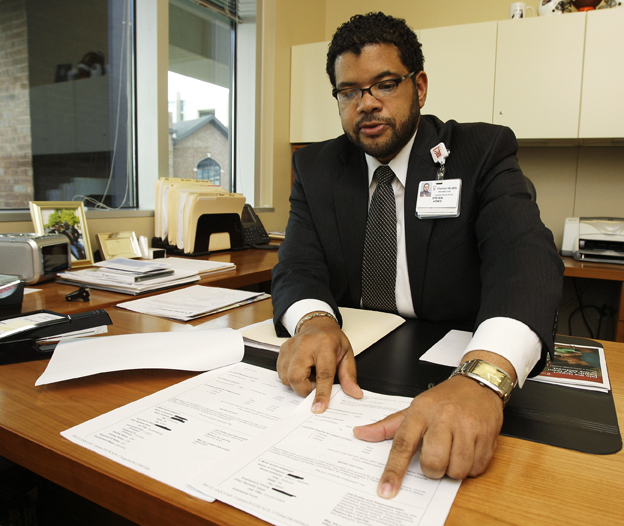Job hunting tougher online
Online applications are devoid of personality and character.
It’s hard enough to find “Help Wanted” signs these days without being forced to apply online and lose yourself in the system.
A couple of weeks ago I went into Borders to ask for an application and was told that I had to apply online because the company no longer used paper applications.
After filling out my online form and receiving my confirmation e-mail thanking me for applying, I waited.
And I waited.
And then I waited some more.
I never heard a word back. No “Thank you for applying, but we don’t have any positions at the moment.” Not a word.
By converting to these online-only application forms, companies are forcing potential employees to plunge themselves into a faceless crowd with little to no hope of being recognized. With the tried and true paper application system, applicants have the opportunity to go into the store, meet the manager and potential co-workers and leave an impression in their minds.
When you return to submit your application, they will already know who you are and have a face to put with your name when reviewing your information—something of which online-only job markets rob you.
Sure, it might be easier for companies not to have to deal with the piles of paper applications, but how much can you learn about someone from a computer screen? Impressions are important: they identify you as a human being, as more than just a name and a list of attributes and work references on a screen.
Yes, it’s more convenient to be able to sit down at your desk in the comfort of your own home, filling out application after application in nothing but your underwear.
But from that position you aren’t able to show employers and convince them about your personality or work ethic. The trade-off for comfort is a lack of identity beyond your employment statistics.
In a world where technology is doing more and more things for us every day—navigating our cars, opening our doors, dispensing our soap and flushing our toilets—we should hang on to the human connection in our work life.
Otherwise, losing our applications in the ether will soon translate to our bank accounts running dry.






